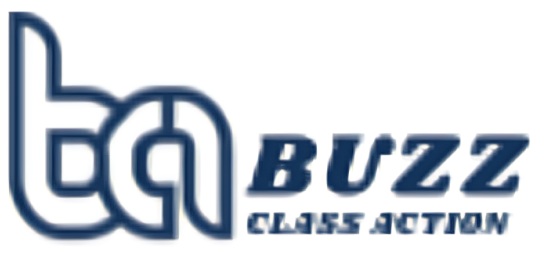Ever wonder why your breath still isn’t fresh even after brushing and flossing? The answer might be hiding on your tongue. Enter the tongue scraper—a simple yet powerful tool that can elevate your oral hygiene game to the next level. But what exactly is a tongue scraper, and why should you be using one? Let’s dive into the nitty-gritty of this often-overlooked oral care practice.
What is a Tongue Scraper?
A tongue scraper is a small, flat tool used to remove bacteria, food particles, and dead cells from the surface of the tongue. It’s typically made of metal, plastic, or copper, and it’s designed to be gentle yet effective in cleaning the tongue. Think of it as a squeegee for your tongue, sweeping away debris that your toothbrush often misses.
MUST VISIT: Buzzclassaction.org
The History of Tongue Scraping
Tongue scraping isn’t some new health fad. It dates back thousands of years, with origins in ancient Ayurvedic medicine. The practice was believed to help balance the body’s energies, improve digestion, and maintain good oral hygiene. Even today, tongue scraping is a common routine in many cultures around the world.
The Importance of Oral Hygiene
We all know that brushing and flossing are crucial, but oral hygiene goes beyond that. While brushing cleans your teeth and flossing gets between them, the tongue is often neglected. This neglect can lead to various oral health issues that brushing alone can’t solve.
Beyond Brushing and Flossing
Most of us brush our teeth twice a day, maybe floss once if we’re diligent, but how often do we think about cleaning our tongues? The tongue is a breeding ground for bacteria, and it can hold onto food particles and dead cells that contribute to bad breath and other oral health issues.
Common Oral Health Issues
Without proper care, the bacteria on your tongue can lead to bad breath (halitosis), gum disease, and even tooth decay. In fact, the tongue can harbor up to 80% of the bacteria in your mouth! That’s why incorporating a tongue scraper into your daily routine is a game changer.
How a Tongue Scraper Works
Tongue scrapers are specifically designed to clean the tongue’s surface. They’re usually flat and slightly curved, making it easy to glide over the contours of the tongue.
The Design of a Tongue Scraper
Most tongue scrapers have a simple design: a handle and a curved scraping edge. This edge can be made from various materials like metal or plastic, each offering different benefits.
The Mechanism Behind Tongue Scraping
When you drag the scraper from the back of your tongue to the front, it collects and removes debris, bacteria, and dead cells. The process is quick, painless, and incredibly satisfying—like peeling off a face mask, but for your mouth!
Benefits of Using a Tongue Scraper
So, why should you add tongue scraping to your routine? The benefits go beyond fresh breath.
Reduces Bad Breath
The primary benefit of tongue scraping is fresher breath. Since most bad breath is caused by bacteria on the tongue, removing these microorganisms can significantly improve your breath.
Improves Taste Sensation
By clearing the gunk off your tongue, you actually enhance your taste buds’ ability to detect flavors. This means your meals will taste richer and more satisfying.
Enhances Overall Oral Health
Using a tongue scraper reduces the overall bacteria in your mouth, lowering your risk of gum disease, cavities, and other oral health issues.
Boosts Immunity
Your tongue is the first line of defense in your immune system. By removing harmful bacteria, you help prevent these germs from being swallowed and affecting your gut health.
Different Types of Tongue Scrapers
Not all tongue scrapers are created equal. Let’s explore the different types available so you can find the right one for you.
Metal Tongue Scrapers
Durable and easy to clean, metal scrapers are a popular choice. They come in stainless steel and copper varieties, both known for their antimicrobial properties.
Plastic Tongue Scrapers
Plastic scrapers are lightweight and often more affordable. However, they may not be as durable or effective as metal options.
Copper Tongue Scrapers
Copper has natural antimicrobial properties, making it a great choice for tongue scraping. It’s also gentle on the tongue and easy to clean.
Stainless Steel Tongue Scrapers
Stainless steel scrapers are rust-resistant and easy to sterilize, making them a hygienic choice for daily use.
How to Use a Tongue Scraper Effectively
Using a tongue scraper is simple, but doing it correctly will ensure you get the most benefits.
Step-by-Step Guide
- Stick out your tongue as far as you can.
- Place the scraper at the back of your tongue (as far back as comfortable).
- Gently pull the scraper forward, scraping off any debris.
- Rinse the scraper and repeat 2-3 times.
- Rinse your mouth with water.
Common Mistakes to Avoid
- Don’t scrape too hard; it should be gentle.
- Avoid using a dirty scraper; always rinse between uses.
- Don’t forget to scrape the back of your tongue, where bacteria often hide.
When to Use a Tongue Scraper
Tongue scraping can be done at any time of the day, but certain times are more beneficial.
Ideal Time of Day
Most experts recommend tongue scraping first thing in the morning before eating or drinking. This helps remove bacteria that have accumulated overnight.
How Often Should You Use It?
Daily use is ideal for most people, but even scraping a few times a week can make a big difference in your oral hygiene.
Who Should Use a Tongue Scraper?
Almost everyone can benefit from tongue scraping, but it’s especially helpful for certain individuals.
Suitable for All Ages
From kids to seniors, tongue scraping can be adapted for any age group. Just ensure children use it gently to avoid discomfort.
Specific Conditions That Benefit from Tongue Scraping
People with chronic bad breath, smokers, and those who frequently experience dry mouth may find tongue scraping particularly beneficial.
Potential Side Effects and Precautions
While tongue scraping is generally safe, it’s important to be aware of potential risks.
Is Tongue Scraping Safe?
Yes, when done correctly, tongue scraping is safe. However, scraping too hard or using a damaged scraper can irritate your tongue.
Warning Signs to Look Out For
If you notice pain, bleeding, or any unusual symptoms after scraping, stop immediately and consult a healthcare professional.
Comparing Tongue Scraping with Mouthwash
Mouthwash and tongue scraping both target oral bacteria, but they work in different ways.
Which is More Effective?
While mouthwash kills bacteria, it doesn’t physically remove the debris like a tongue scraper does. Using both can provide the best results.
Combining Both for Best Results
For optimal oral hygiene, consider using mouthwash after scraping to wash away any remaining bacteria.
How to Choose the Right Tongue Scraper
Choosing the right scraper can make a huge difference in your experience and results.
Factors to Consider
- Material: Metal, plastic, or copper?
- Size: Ensure it’s comfortable for your mouth.
- Ease of cleaning: Some scrapers are easier to maintain than others.
Top Recommended Brands
Popular brands like Dr. Tung’s, GUM, and Orabrush offer a variety of options to suit your needs.
Cleaning and Maintaining Your Tongue Scraper
Proper maintenance is key to ensuring your scraper remains effective.
How to Clean It Properly
Rinse after each use and occasionally soak in a mixture of water and vinegar to disinfect.
When to Replace Your Tongue Scraper
Most scrapers can last several months, but replace them if you notice any wear or damage.
The Science Behind Tongue Scraping
Scientific studies back up the benefits of tongue scraping, showing improvements in breath quality and oral health.
Research and Studies
Several studies have demonstrated that tongue scraping reduces the number of volatile sulfur compounds (VSCs) responsible for bad breath.
Expert Opinions
Dentists and oral health experts widely recommend tongue scraping as part of a comprehensive oral hygiene routine.
Myths and Misconceptions About Tongue Scraping
Despite its benefits, tongue scraping is surrounded by myths that can deter people from trying it.
Debunking Common Myths
- Myth: Tongue scraping is painful.
Truth: It’s painless when done correctly. - Myth: It’s only for people with bad breath.
Truth: Everyone can benefit from cleaner tongues.
The Truth About Tongue Scraping
Tongue scraping is a simple, cost-effective way to boost your oral health, no matter your current routine.
Conclusion
Tongue scraping might seem like an unnecessary step in your oral hygiene routine, but it’s far from it. This simple tool can enhance your breath, taste, and overall oral health with just a few seconds of use each day. Give it a try—you might be surprised at the difference it makes!
FAQs
Is tongue scraping necessary if I brush my tongue?
Brushing your tongue helps, but scraping is more effective in removing bacteria and debris.
Can tongue scraping cause damage?
Not if done gently. Avoid scraping too hard or using damaged scrapers.
How often should I replace my tongue scraper?
Replace it every few months or sooner if it shows signs of wear.
Is it better to use a metal or plastic tongue scraper?
Metal scrapers are generally more durable and effective, but plastic is a good budget-friendly option.





